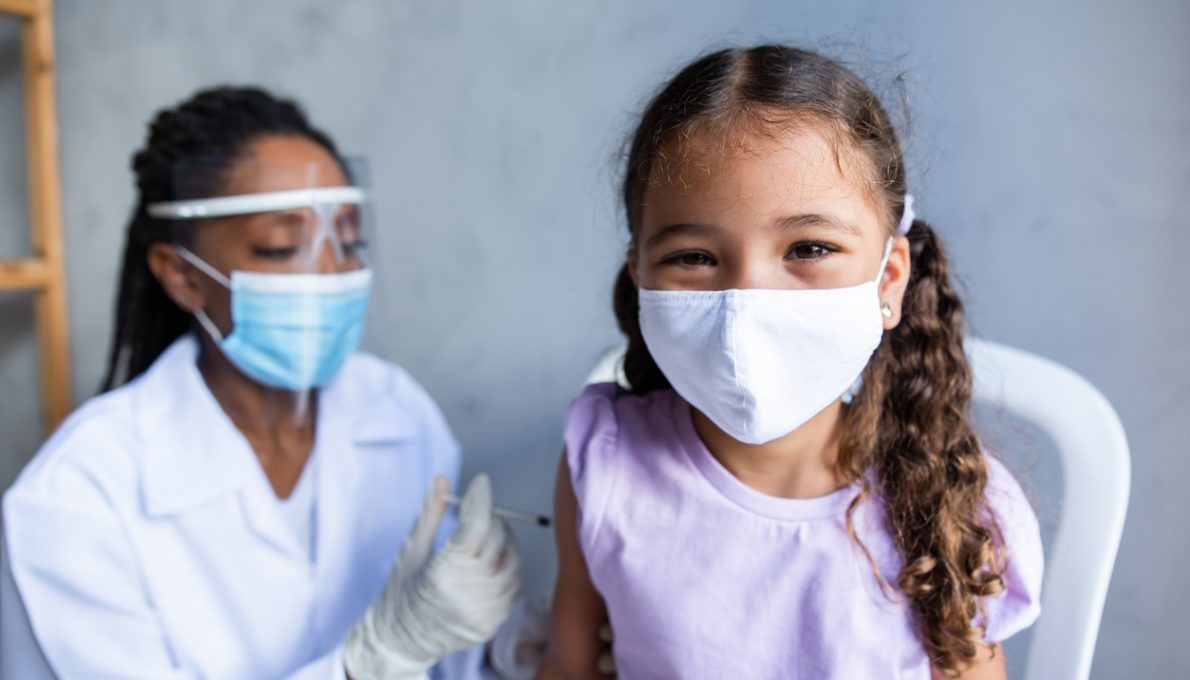NBC News/TODAY Show published a story on May 3, quoting BP2C Executive Director Dr. Scott Ratzan. Since Pfizer’s COVID-19 boosters in kids age 5-11 have been authorized by the FDA and recommended by the CDC, public health experts such as Dr. Ratzan weighed in, pointing out that during the recent omicron surge, those who were boosted “were 21 times less likely to die of COVID-19 compared to those unvaccinated, and seven times less likely to be hospitalized,” he said. “Booster shots are safe and effective.” The full story is below.
The U.S. Centers for Disease Control and Prevention has expanded eligibility for Pfizer’s COVID-19 booster shot to include children ages 5 through 11. The shots could be available as soon as Friday, NBC News previously reported.
The CDC group that recommended the vaccine, the Advisory Committee on Immunization Practices, voted 11-1 (with one abstention) Thursday to make a third dose of the vaccine available to 5 to 11-year-olds.
CDC director Dr. Rochelle Walensky later endorsed the vote, saying in a statement Thursday that kids 5 to 11 “should receive a booster dose at least five months after their primary series.”
“With over 18 million doses administered in this age group, we know that these vaccines are safe, and we must continue to increase the number of children who are protected,” she added. “I encourage parents to keep their children up to date with CDC’s COVID-19 vaccine recommendations.”
The U.S. Food and Drug Administration authorized the shot in this age group earlier this week.
“While it has largely been the case that COVID-19 tends to be less severe in children than adults, the omicron wave has seen more kids getting sick with the disease and being hospitalized, and children may also experience longer term effects, even following initially mild disease,” said FDA Commissioner Dr. Robert M. Califf in a statement at the time.
“Vaccination continues to be the most effective way to prevent COVID-19 and its severe consequences, and it is safe.”
The decision comes as COVID cases in the U.S. are surging again due omicron subvariants.
Pfizer requested a third dose of its vaccine be authorized in kids 5 to 11 after submitting data showing the low-dose booster shot — the same amount as the first two shots for kids in this age group, but one-third of what people 12 and up receive — is safe and could help protect this age group against variants of the coronavirus. The FDA said in a statement Tuesday that “the antibody level against the SARS-CoV-2 virus one month after the booster dose was increased compared to before the booster dose.”
Data that Pfizer released in mid-April also showed that a third dose of the vaccine boosted antibodies against omicron by 36 times in children of this age group. But not every public health official is convinced that another shot is needed yet in younger children.
Are COVID-19 boosters for children necessary?
No expert told TODAY they were worried about the safety of boosters in kids, but several questioned timing for boosters and whether they are necessary as an emergency-authorized tool at this stage in the pandemic.
Dr. Phil Krause, a former deputy director of the FDA’s Office of Vaccines Research and Review, maintains that “COVID vaccines have been very safe,” and told TODAY he recommends boosters for the elderly and for people who are high risk for severe COVID-19. But he said he “questions the need for boosters in otherwise healthy people (including children) who were previously vaccinated and infected.”
Krause explained that primary, available data that supports boosters for this age group only measures increased levels of antibodies but fails to weigh other immune responses important for predicting long-term protection in children. He said that more needs to be understood about how long booster protection actually lasts.
“We’ve learned from adults that booster effects don’t usually last very long, but of course that could be different in children; we just don’t have a lot of data yet to rely on to make those types of predictions,“ he said. He added that he understands parents who choose to wait to see the long-term benefits of boosting. “Nobody wants to get a vaccine that they don’t need or where the benefit turns out not to be as good or as long as was promised.”
Dr. John Moore, a professor of microbiology and immunology at Weill Cornell Medicine, offered a similar take. “It’s likely that the first two doses are already sufficient to protect the children against severe, hospital-grade infections or worse. The booster dose may not add much extra protection here,” he said. (Moore noted that children who are immunocompromised are an exception.)
